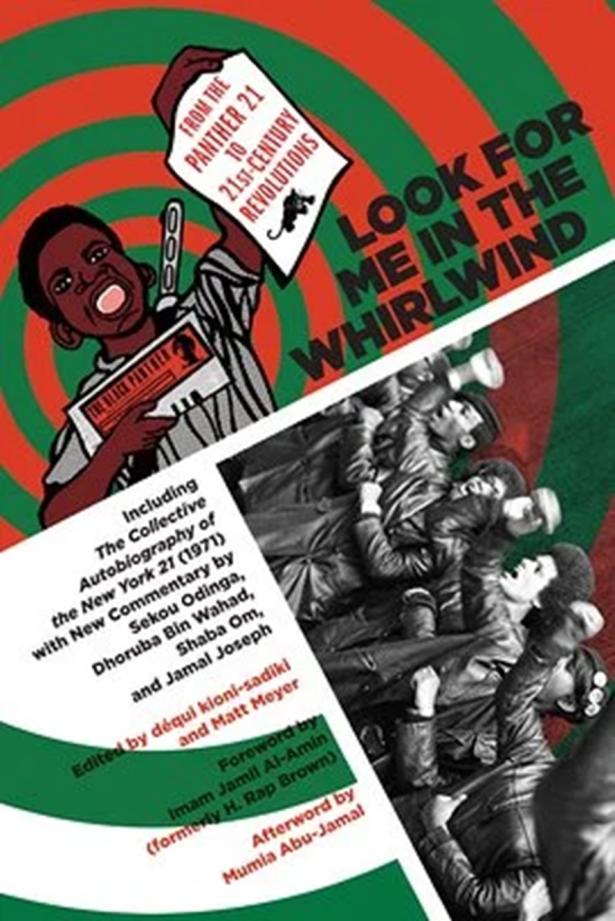A Jury Frees the Panther 21 in 1969
55 YEARS AGO, on April 2, 1969, New York City police staged multiple pre-dawn raids to arrest 19 people associated with the Black Panther Party on charges of conspiring to plan bombings and sniper attacks. Two others who had been indicted evaded arrest for seven months. Bail for the accused was set at astronomically high levels, with the result that most of the defendants remained in jail until their trial ended more than two years later. When the trial took place, almost all of the "evidence" against the defendants turned out to be testimony by three undercover police, who had infiltrated the group by posing as supporters. It became clear in the course of the trial that the police informers had been the prime instigators of the plans to break the law. As a result, the jury needed less than four hours to go through the 156-count indictment and acquit everyone on each charge. https://files.libcom.org/files/Vol_III_No7_1969_2.pdf
8 Hours a Day is Long Enough to Work in 1919
105 YEARS AGO, on April 3, 1919, Spain enacted a law that restricted the workday in all Spanish workplaces to eight hours. Previously, other countries had mandated the 8-hour day for specific industries or categories of workers, such as women, but Spain was the world's first jurisdiction to apply the rule to every worker in the country.
The 8-hour law had been agreed to in order to settle a weeks-long general strike that had virtually shut down Barcelona, Spain's largest industrial city. The strike had started in the city's main electric generating station, the shut-down of which had the effect of bringing most industrial activity and public transportation to a halt. Tens of thousands of workers who had not been striking at first joined the strike when the lack of electricity made work impossible. In order to end the strike, the government not only agreed to mandating an 8-hour day, it also released thousands of workers who had been arrested for striking. All workers who had been fired for striking were rehired. Many large employers recognized unions for the first time and also increased wages. https://www.barcelona.cat/metropolis/en/contents/the-eight-hour-day-tri…
When You're Hot, You're Hot in 1964
60 YEARS AGO, on April 4, 1964, the world of popular music experienced a completely unprecedented event. On this day, the top 5 positions on the U.S. Billboard Hot 100 singles chart were by a single artist: The Beatles. Numbers 1 to 5 were “Can’t Buy Me Love”, “Twist and Shout”, “She Loves You”, “I Want to Hold Your Hand” and “Please Please Me.” Equally unprecedented was that the Beatles had a total of 12 songs in the top 100, including "I Saw Her Standing There" (#31), "From Me To You" (41), ""Do You Want To Know A Secret" (46), "All My Loving" (58), "You Can't Do That" (65), "Roll Over Beethoven" (68), and "Thank You Girl." (79). https://en.wikipedia.org/wiki/Cultural_impact_of_the_Beatles
Take Your War and Shove It! in 1969
55 YEARS AGO, on April 5, 1969, tens of thousands of people all over the U.S. took to the streets to demand an end to the U.S. war against the Vietnamese people. Major demonstrations took place in Manhattan, Philadelphia, Washington DC, Chicago, San Francisco and Los Angeles, not to mention large gatherings in Boston, Cleveland, Denver, Portland and Seattle. https://www.smithsonianmag.com/history/scenes-50-years-ago-spring-when-…
You CAN Fight City Hall in 1934
90 YEARS AGO, on April 6, 1934, some 6000 militant demonstrators besieged City Hall in Minneapolis, Minnesota, effectively imprisoning the City Council meeting inside. For more than four hours the police -- using tear gas and billy clubs -- attempted unsuccessfully to lift the siege. The police had installed machine guns in the building in anticipation of the demonstration, but they refrained from using them.
The protesters, many of whom were Communist Party activists, were demanding an immediate and substantial increase in relief payments to thousands of unemployed city residents who were suffering as a result of the Great Depression. While the demonstration continued outside, the City Council voted in favor of a series of bills that were in conformity with the demonstrators' demands. https://depts.washington.edu/moves/unemployed_map.shtml
Inventing Email Wasn't Easy
55 YEARS AGO, on April 7, 1969, Steve Crocker, a 24-year-old computer science graduate student, published "Request for Comments 1" (RFC-1), one of the first papers about the design of what eventually became the Internet. He emailed it to colleagues who were connected to the University of California computer network, but the only way he could send it to anyone else was to print it out and send it via snail-mail. Email as we now know it, allowing anyone to send a message to anyone with an Internet connection, would not exist for years, and "Request for Comments 1" helped to lay the foundation for what became the World Wide Web. https://en.wikipedia.org/wiki/History_of_the_Internet
Jim Crow Must Go! in 1964
60 YEARS AGO, on April 8, 1964, the state of Mississippi enacted "An Act to Prohibit the Unlawful Picketing of State Buildings, Courthouses, Public Streets and Sidewalks." The new law was passed in reaction to the civil rights movement's plan for Mississippi Freedom Summer, a massive statewide campaign to end the Jim Crow disenfranchisement of the vast majority Black Mississippians.
The day after the bill was signed, police in Greenwood arrested 52 activists who were picketing the county courthouse in a long-planned demonstration against the county's refusal to register Black voters. Those arrested included five children under the age of 14. On April 10, 55 picketers were arrested during a similar protest outside the Hattiesburg courthouse. https://www.zinnedproject.org/materials/freedom-summer-1964/


Spread the word